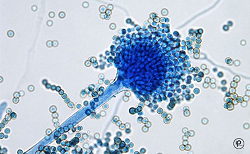Description: Selective Plane Illumination Microscopy (SPIM) greatly reduces phototoxicity in comparison with other fluorescent imaging modalities and makes it possible to image living small animals in 3D over extended periods of time. This talk describes an extension of SPIM such that it can be used with specimens on a coverslip rather than in a capillary (inverted SPIM or iSPIM), and a second modification that images the specimen using two perpendicular light sheets (Dual-View iSPIM or diSPIM), resulting in 3D datasets with the same resolution in X, Y, and Z (isotropic resolution)
About the Speaker: Hari Shroff
Hari Shroff is an Investigator at the National Institute of Biomedical Imaging and Bioengineering at the National Institutes of Health. During his post-doc, which was with Eric Betzig at HHMI’s Janelia Farm Research Campus, he focused on the development of PALM (photoactivated localization microscopy) microscopy. Since then he has developed several microscopy techniques, such as diSPIM and instant structured illumination microscopy.
For full tutorial & assessment go to iBiology
Medical and Patient education videos
-
Title
Description
-

Prof. Neil Gow, University of Aberdeen
-

Chair: Prof. Peter Donnelly
Proposers: Drs. Keith Wilson (BMT Unit, Cardiff) & Vanya Gant (Microbiology, UCLH, London)
Opposers: Drs. Brian Jones (Microbiology, Glasgow) & Stephen Ellis (Imaging, Barts, London) -

Dr. Jonathan Lambourne, Hospital for Tropical Diseases, London
Dr. Subathira Dakshina, Genito-Urinary Medicine & HIV, Bart’s Health NHS Trust, London -

Prof. Paul Verweij, Microbiology, Nijmegen, The Netherlands
-

Dr. Gemma Johnson & Prof. Stephen Bustin, Anglia Ruskin University, Chelmsford
-

Dr. Chris Thornton, University of Exeter
-

Prof. Rosemary Barnes, Cardiff University School of Medicine
Dr. Mansour Ceesay, King’s College Hospital, London -

An annual clinical forum intended to provide updates on a wide range of fungal infection topics
http://fungalupdate.org/
-

Prof. David Denning, Professor of Infectious Diseases in Global Health, The University of Manchester
